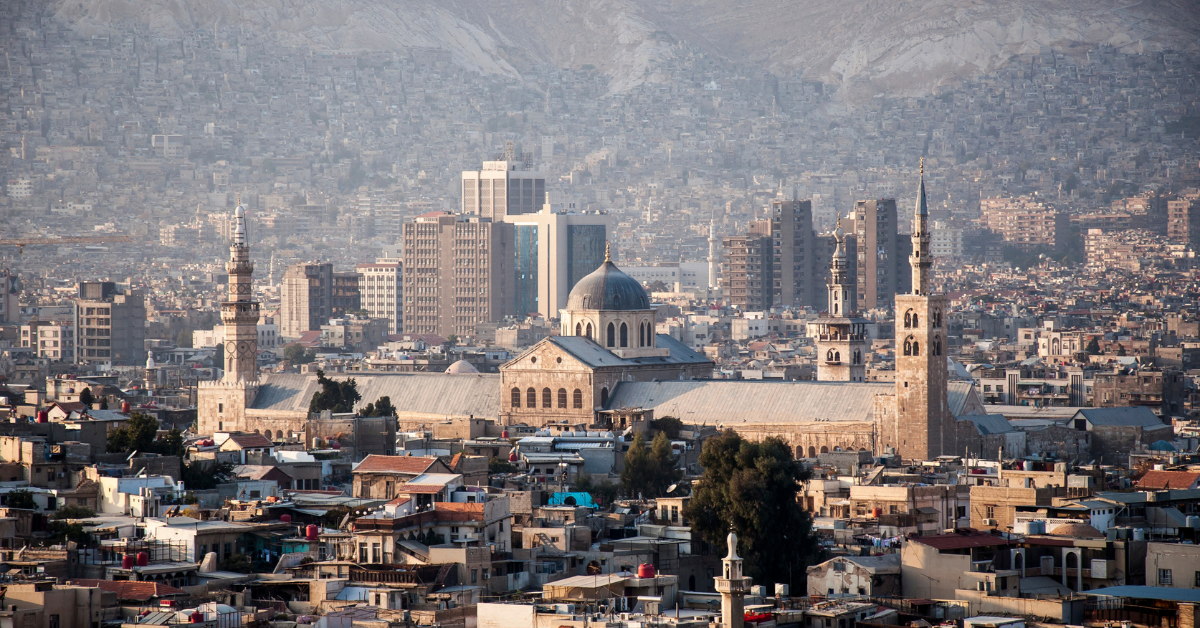In Japanese, foreign place names are usually written in katakana, and Damascus has no official kanji form. However, the word carries two distinct meanings: one as the capital of Syria, and another as a symbol of beauty and craftsmanship in knives and metalwork. This duality makes Damascus a unique cultural keyword in Japan.
Does Damascus Have a Kanji Representation?
Damascus has no official kanji representation. In Japanese, foreign place names are typically transcribed phonetically into katakana. Thus, in newspapers, maps, and textbooks, it consistently appears as “ダマスカス” (Damascus). This follows the Japanese convention of using katakana for foreign proper nouns, prioritizing clarity and readability over forced kanji translations.
There is, however, an exception in religious contexts. In Bible translations, it appears as “ダマスコ” (Damasco). This comes from the story of the “Road to Damascus” in the New Testament, where the conversion of Saul (later Paul) took place.
The following table shows how Damascus is represented in different contexts:
| Representation | Context | Characteristics |
|---|---|---|
| ダマスカス (Damascus) | Common city name | Newspapers, textbooks, maps |
| ダマスコ (Damasco) | Religious texts (Bible) | Classical translation usage |
| ダマスカス模様 (Damascus Pattern) | Crafts, knives | Only “模様” (pattern) is in kanji |
In conclusion, there is no kanji form of Damascus, and katakana is the mainstream usage in modern Japanese.
The Two Images of Damascus in Japan
For Japanese people, Damascus carries two different connotations:
| Context | Representation | Main Japanese Perception |
|---|---|---|
| Capital city of Syria | ダマスカス | Ancient city, cultural hub, site of conflict |
| Metalwork and crafts | ダマスカス鋼 (Damascus steel), ダマスカス模様 (Damascus pattern) | Luxury knives, beautiful patterns, craftsmanship |
As a city, Damascus evokes images of history, religion, and world heritage. In contrast, in the world of craftsmanship, “Damascus” symbolizes beauty, luxury, and technical mastery. This duality explains why the word resonates so strongly in Japan.
Historical Background and Cultural Resonance of Damascus
Damascus is one of the oldest continuously inhabited cities in the world. Located at a crossroads of civilizations, it prospered as a key stop along the Silk Road, where diverse cultures and religions met. It became a major center of Islamic civilization and played a significant role in Christian history.
The persistence of the name “Damasco” in Japanese Bible translations is linked to the story of Saul’s conversion on the road to Damascus, which holds great religious importance. Thus, in Japanese contexts, Damascus is not only a geographical term but also a spiritual and cultural symbol.
Damascus in the World of Sports
Surprisingly, the name Damascus also appears in sports. During international competitions, the Syrian national team is often introduced as being based in Damascus. Many Japanese viewers have heard the city’s name in contexts such as soccer, basketball, or Olympic qualifiers.
In addition, the sound of the name carries connotations of strength and mystery, making it appealing for use in combat sports and professional wrestling as a ring name.
In outdoor and sporting goods, Damascus steel is also prominent. Knives and camping tools featuring Damascus patterns are prized for their durability and elegance, making Damascus synonymous with high-end gear.
Here is a summary of how Damascus is linked with sports and outdoor contexts:
| Field | Example | Meaning |
|---|---|---|
| Soccer | Base city of Syrian national team | Featured in international tournaments |
| Combat sports & wrestling | Ring name “Damascus” | Symbol of strength and exoticism |
| Outdoor gear | Damascus steel knives | Luxury and durability |
Modern Perceptions of Damascus Among Japanese People
The image of Damascus in Japan has shifted over time, reflecting historical, political, and cultural contexts:
- Historical Dimension
Seen as one of the world’s oldest cities, valued for its role in Silk Road history. - Political Dimension
Since the Syrian Civil War, it has often been perceived as a dangerous or war-torn place. - Craftsmanship Dimension
Damascus-patterned knives and blades are widely recognized as luxury items and the pinnacle of artisanal skill. - Sports Dimension
Through international sports broadcasts and outdoor gear, Damascus is associated with strength, reliability, and prestige.
The table below summarizes how Japanese perceptions of Damascus have evolved:
| Era | Main Image | Example |
|---|---|---|
| Ancient–Medieval | Crossroads of civilizations | Silk Road, religious hub |
| Modern | Cultural and historical symbol | World history, Bible translations |
| Early contemporary | Symbol of conflict and danger | Syrian Civil War, refugee crisis |
| Recent contemporary | Symbol of craftsmanship and sports | Damascus knives, global tournaments |
Today, Damascus embodies both “danger” and “admiration,” making it a unique cultural symbol in Japan.
Conclusion
Damascus has no official kanji representation, with katakana being the standard form. The word carries two main connotations in Japan: as a city, it symbolizes history, religion, and culture; as a craft term, it represents beauty, luxury, and technical mastery.
Moreover, Damascus has extended into the sports and outdoor worlds, where it stands for strength, endurance, and trustworthiness.
Thus, Damascus is not merely a city name for Japanese people—it is a multifaceted symbol spanning history, spirituality, craftsmanship, and athletics. This layered significance is why the word “Damascus” continues to resonate so deeply in Japanese culture.






